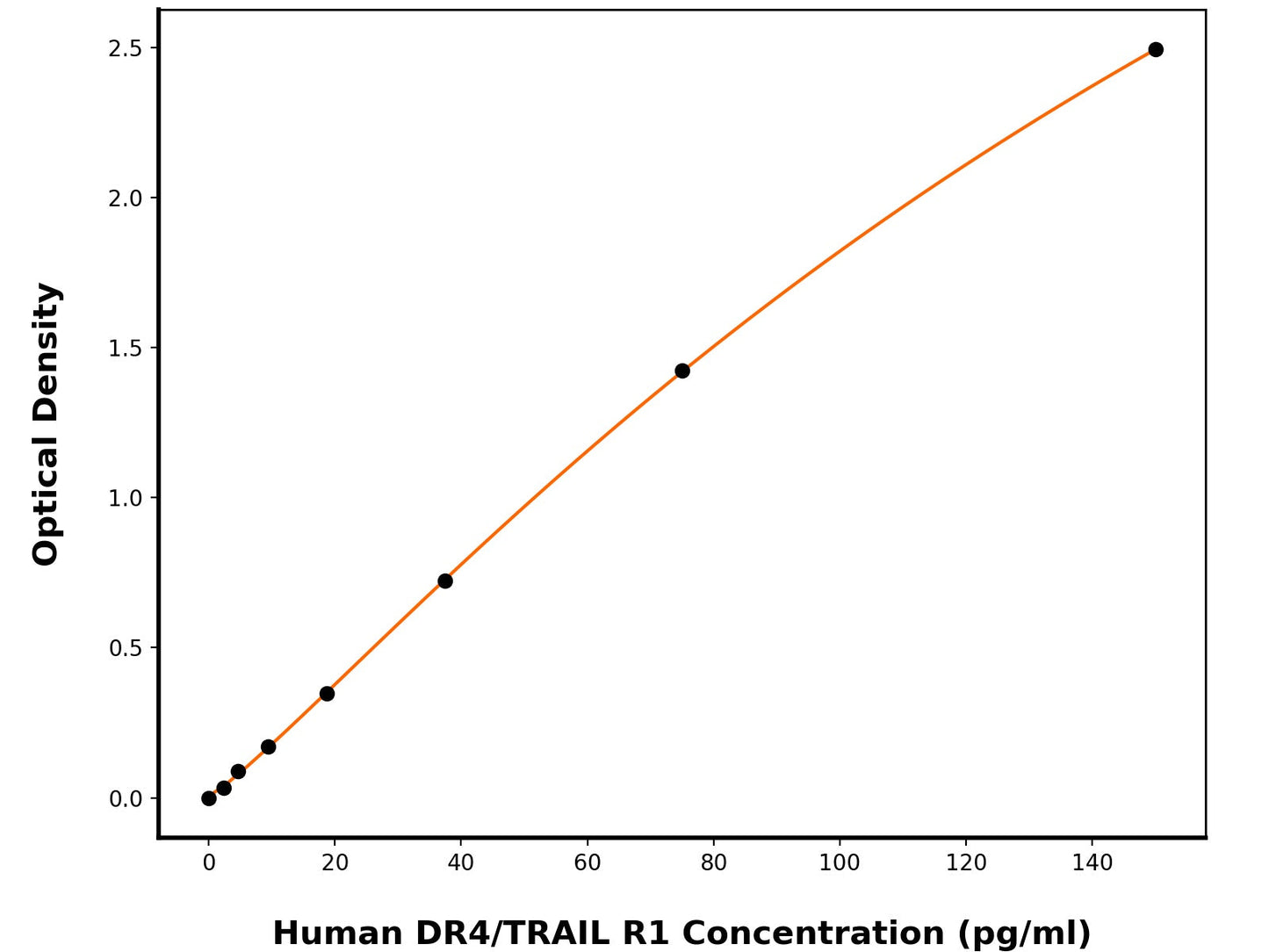1
/
of
1
Human Tumor Necrosis Factor Receptor Superfamily Member 10A (TNFRSF10A) ELISA Kit
Human Tumor Necrosis Factor Receptor Superfamily Member 10A (TNFRSF10A) ELISA Kit
This ELISA kit is designed to detect Human Tumor Necrosis Factor Receptor Superfamily Member 10A (Human TNFRSF10A). The assay plate has been pre-coated with mouse anti-Human DR4 monoclonal antibody. When the sample containing DR4 is added to the plate, it binds to the antibodies coated on the wells. Then, a horseradish peroxidase conjugated mouse anti-Human DR4 Antibody is added to the wells and binds to DR4 in the sample. After washing the wells, substrate solutions are added, and the color intensity is directly proportional to the amount of Human DR4 present. The reaction is stopped by adding an acidic stop solution, and the absorbance is measured at 450 nm.
Catalog No:
BPE077
Regular price
$624.00 USD
Regular price
$480.00 USD
Sale price
$624.00 USD
Unit price
/
per
2 weeks
Couldn't load pickup availability
Product Details
Species Reactivity
Human
Sensitivity
0.52 pg/mL
Detection Range
2.34-150 pg/mL
Sample Type
Serum, plasma, cell culture supernates
Incubation(s)
3.5 hour(s)
Research Areas
Cell Biology, Immunology, Cardiovascular
Background
Tumor necrosis factor receptor superfamily, member 10a (TRAIL R1), also known as TRAIL receptor 1 (TRAIL R1) or CD261 antigen, is a member of the TNF-receptor superfamily. This receptor is activated by tumor necrosis factor-related apoptosis inducing ligand (TNFSF10/TRAIL), and thus transduces cell death signal and induces cell apoptosis. Studies with FADD-deficient mice suggested that FADD, a death domain containing adaptor protein, is required for the apoptosis mediated by this protein. TRAIL R1/CD261/TNFRSF10A serves as a receptor for the cytotoxic ligand TNFSF10/TRAIL. The adapter molecule FADD recruits caspase-8 to the activated receptor. The resulting death-inducing signaling complex (DISC) performs caspase-8 proteolytic activation which initiates the subsequent cascade of caspases (aspartate-specific cysteine proteases) mediating apoptosis. TRAIL R1 can promote the activation of NF-kappa-B. TRAIL R1/CD261/TNFRSF10A induces apoptosis of many transformed cell lines but not of normal tissues, even though its death domain-containing receptor, DR4, is expressed on both cell types. Cancer Immunotherapy Immune Checkpoint Immunotherapy Targeted Therapy
Shipping Condition
Shipped on cold gel packs.
Storage Condition and Shelf Life
This product can be stored at 2-8C.
Analyte
Tumor necrosis factor receptor superfamily member 10A
Regulatory Status
For Research Use Only

